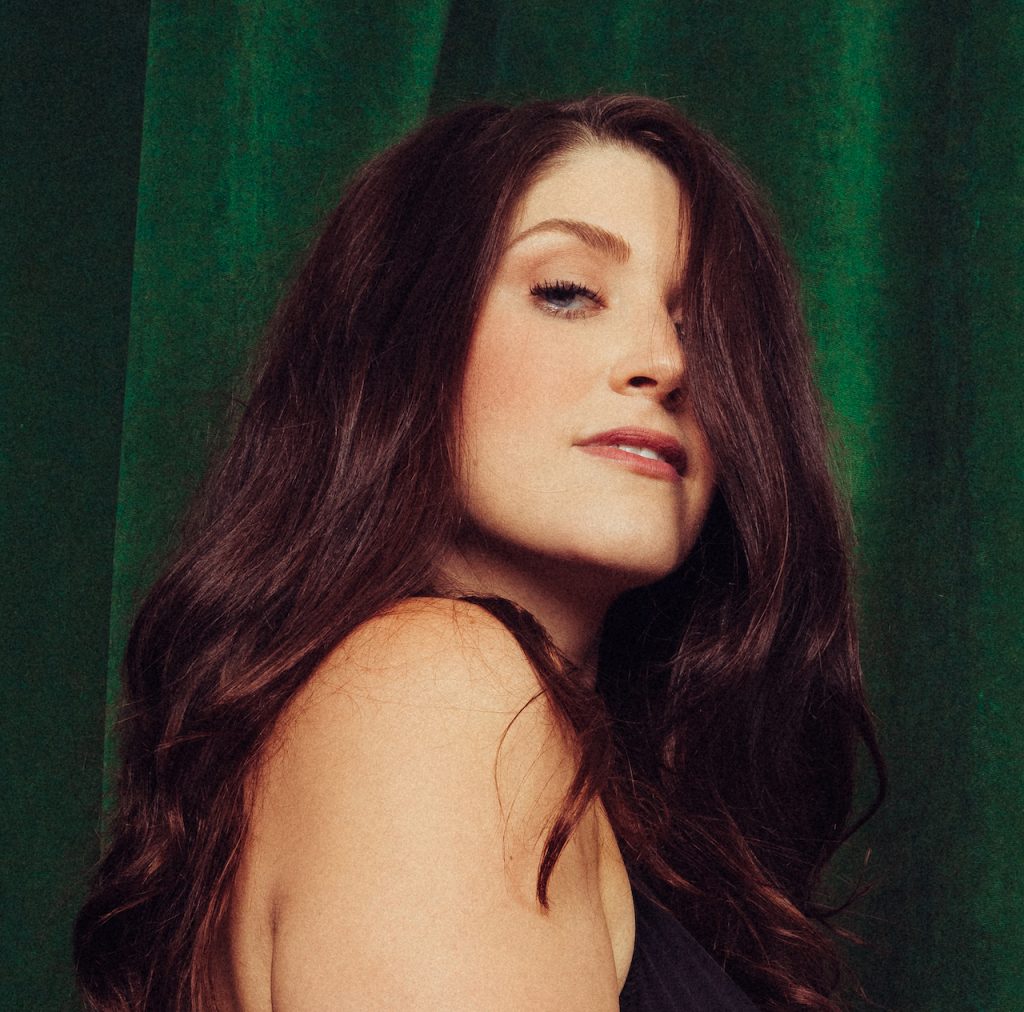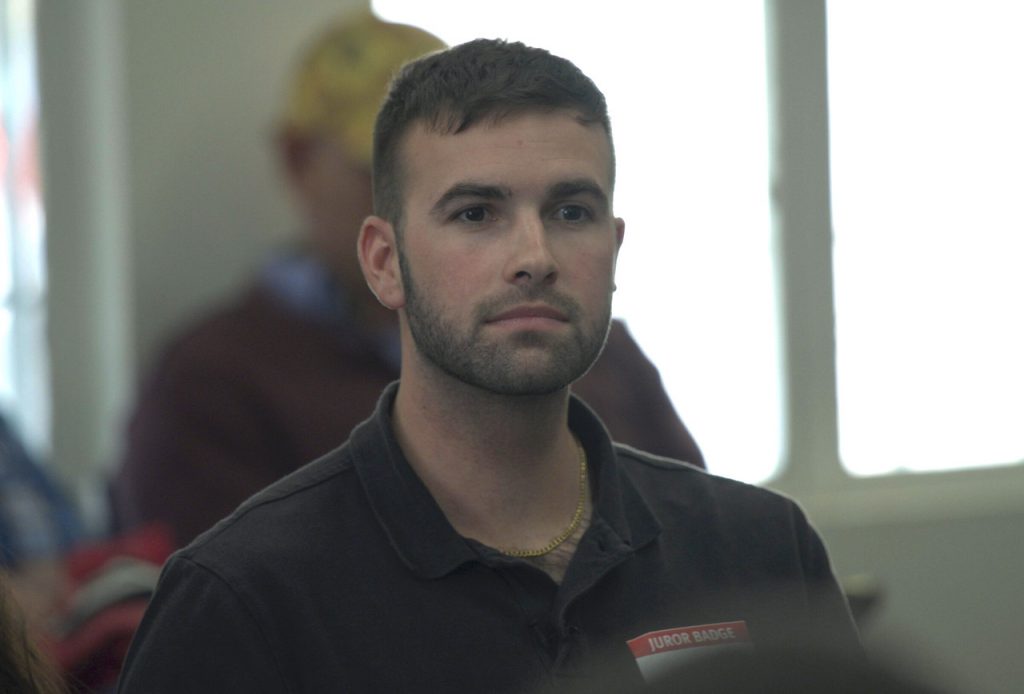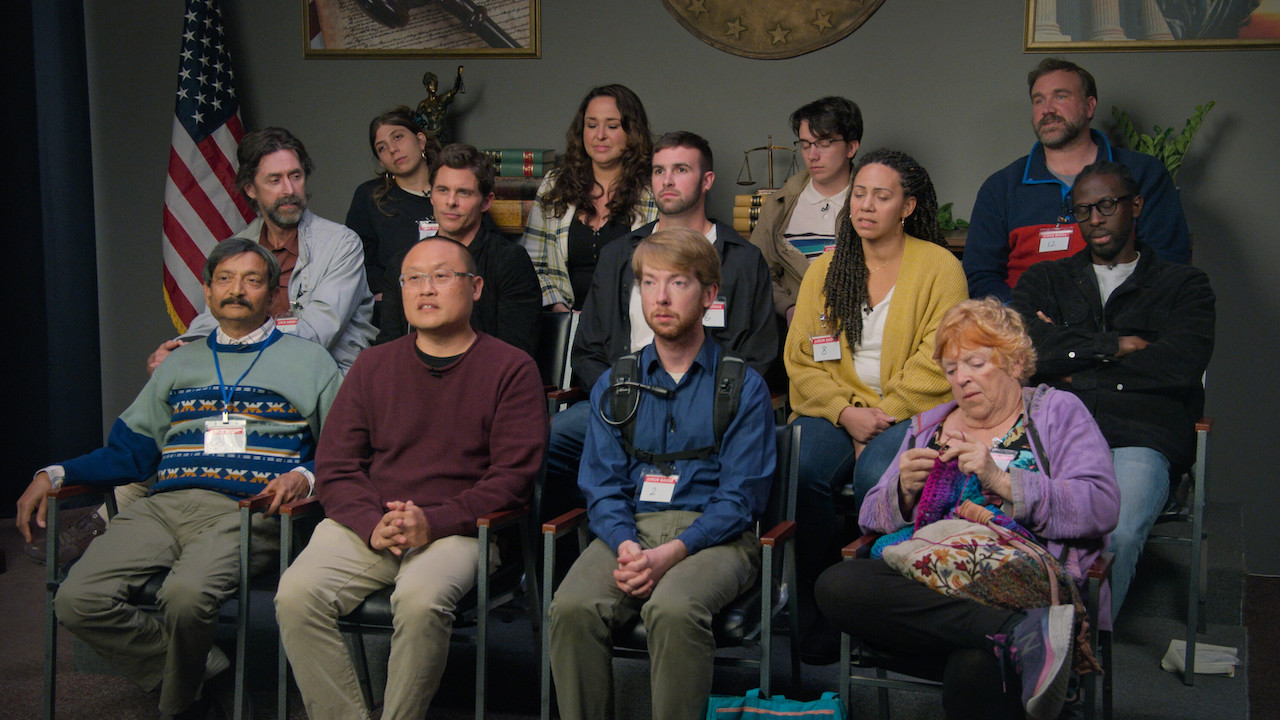Created by comedic masterminds Gene Stupnitsky and Lee Eisenberg (The Office, Good Boys), Jury Duty was sure to turn the traditional workplace comedy on its head. When showrunner Cody Heller (Dummy, Deadbeat) was offered this project to showrun, she was equally scared and exhilarated by the prospect of creating a workplace docu-comedy about a fake trial from the perspective of unsuspecting juror Ronald Gladden, who had no idea he was part of an elaborate ruse. Cody spoke with Creative Screenwriting Magazine about the process of creating this show which is part reality TV, part scripted and a whole lot of fun.
“I’m always drawn to watching things and making things that are laugh out loud funny, but also, that make you feel emotional and maybe even cry a little bit. Strange, sad, funny, and beautiful are my favorite things that I love in a comedy,” declares Heller.
Using their workplace comedy background, Lee Eisenberg and Gene Stupnitsky originally crafted Jury Duty as a regular scripted comedy. Executive producers Todd Shulman and David Bernad came up with the idea of, “What if we take a real guy and make him the center of a sitcom he does not know is going on around him?” Another executive producer, Nicholas Hatton, who also worked on Borat, also brought his deadpan comedic style to the mix.
Then they approached Cody Heller to showrun the TV series. She was fascinated by the idea, but her background in documentaries and scripted comedies made her unsure if she could deliver on that premise. She was terrified that the show would fail. “The idea of doing something that seems almost impossible, or maybe even completely impossible, sounds really exciting,” continues Cody. There were so many uncertain moving parts in Jury Duty that the entire production village had to trust each other to make the show work.
Jury Duty was partially scripted and partially improvised on set because they had no idea how Ronald Gladden was going to react on set. “I wanted to fill the writers’ room with as many actors as I could,” continues Heller. Having potential cast in the writers’ room allowed them to grasp the stories, the conversations, and the characters while building out the world in the courtroom. “There were only two writers who weren’t actors in the writers’ room.” One of these writers is Evan Williams (who also serves as story editor) had a legal background and could guide court proceedings on the page. He also plays the defence attorney Shaun Sanders on the show. Alan Barinholtz, who plays the presiding judge Alan Rosen, was a lawyer before turning to acting, so he also brings legal expertise to the show. Similarly, Trisha LaFache who plays the other lawyer Debra LaSeur, also has previous legal experience. This eliminated the need for a legal consultant on the show.
Each episode of Jury Duty evolved on set. “You have the beat sheets which would give the actors the morning up. We had these morning meetings which were so hard to coordinate because once the jury is sequestered in the hotel, their phones are taken away.” Heller confesses that she would occasionally have to sneak actors out of their rooms to talk to them while keeping Ronald Gladden oblivious.
Cody Heller references Windy City Heat, a movie about a man unaware that he’s caught up in a fake film production as additional inspiration. She insists Gladden wasn’t a bumbling fool, but rather a valued juror. As Ronald became more comfortable with the courtroom situation, he added his own story elements to the show – such as describing a bug’s life.

Cody Heller. Photo by Sela Shiloni
Heller is also a Christopher Guest (Spinal Tap, Best In Show) fan. She wanted to infuse his tonal influences into the show.
Cody Heller describes Ronald Gladden as “invested in his role”, so it was a challenge not to let him in on the secret. It’s unclear if he suspected anything during production. When he became the fore juror, he really kept the other jurors on their toes. He asked pertinent questions about the case which the other jurors had to formulate an appropriate response to.
Despite its “hoax comedy” DNA, Jury Duty ensures that Ronald was never “punked” in the traditional sense because he is the main character. He was told that a small crew would film court proceedings for a documentary. Cody was always aware of the logistical craziness of making this show, but accepted the mission. “We knew that we wanted it to have heart. We knew that we wanted to give this guy a hero’s journey. We never wanted to punch down on this guy.” Gladden was never going to be the butt of the joke.
Jury Duty harnesses Gladden’s good nature to ensure the show isn’t mean-spirited. “I want people to feel some emotion at the end, the power of community, and the power of small kindnesses,” adds Heller. This created a dilemma for Cody regarding the ethics of the show. She always ensured he was taken care of on set, and never felt like an outsider. Even when the conceit of the show was finally revealed to Ronald Gladden, he remained in touch with the cast.
“Ronald restored my faith in humanity. He cared so much about the case and the other people. He never made fun of anyone, even though we presented him with this circus of eccentric weirdos. He took the time to get to know them.”
He eventually discovers the truth in episode eight. “I’m a little bummed because I thought the case was very important. I am a little bummed because I like you guys and now finding out you’re actors.”
“And then Cassandra Blair who plays Vanessa Jenkins said, “We’re actors, but we’re not that good. Ninety-eight percent of our interactions with you had realness there.”
Cody Heller describes the experience similar to deceiving someone while you’re planning a surprise party for them. “You’re celebrating them at the end. I wanted to make sure that when we do this reveal, it’s not going to embarrass him.“
Recruiting Ronald Gladden
Clearly casting producer Susie Farris couldn’t reach out to regular casting agencies to cast Ronald. She initially posted an ad on Craigslist requesting someone without any jury duty experience to participate in a documentary.
Gladden had just sold his Solar Panel Contracting company and was exploring new career opportunities, not specifically acting. It was a “fun opportunity” for him during his “discovery phase.”

Ronald Gladden. Photo courtesy of Amazon Freevee
Producer Alexis Sampietro, short-listed around four thousand hopefuls via Zoom, before reducing the list to five hundred. “We were looking for a very specific kind of person. We didn’t want someone who was gonna be too shy, but we didn’t want someone who was gonna be a ham. We wanted someone who was authentic, but also open to a new experience,” says Heller.
The Writing Process
Jury Duty delicately balances its scripted/ unscripted and writers’ room/onset components. The writers created a storyline and possible responses from Gladden in the room. Cody Heller held the writers’ room in her back yard. “My sliding glass doors were our whiteboards and we had our index cards on there.”
It was a ten-week process where they talked about the major seasonal beats. Each script was seven or eight pages. “I would compare them to Curb Your Enthusiasm scripts where there isn’t much dialogue. They are more like dramaturgy scripts.” There was no way they could script what the lawyers might say each day during a live trial.
The scripts were then expanded into beat sheets containing the overall action and character interactions. “We would have decide if something must happen today or could be a floater for a later episode.”
There were instances when Ronald brought up something as a story point, but there wasn’t a camera present. “We would have ways for the actors to shut down the conversation, and then start it up again as naturally as possible when a camera was present. Sometimes it was a hidden camera, so Ronald wasn’t aware of it.”
Despite the logistical challenges of filming Jury Duty, “I would say that eighty-five percent of it was already there in the DNA from the writers’ room before some stuff changed. The show really came together in the edit.”
The chaotic process of producing Jury Duty taught Cody Heller to always maintain faith in the vision. “Even when we were in the writers’ room, there were so many crazy ideas that came through… I was very open to everything. And I think that made for some really fresh, exciting, crazy stuff even though we were drawing on some common sitcom tropes.”
Due to the nature of Jury Duty, Cody also became less precious of the words on the page because there were so few of them.
[More: “The Real Writing Is In The Outlining” Lee Eisenberg and Gene Stupnitsky Talk ‘Good Boys’]
